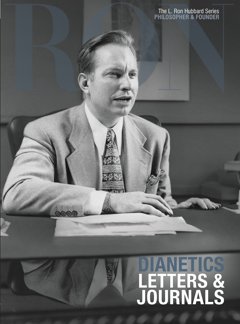Things about Dianetics
Things about Dianetics
Blog Article
Our Dianetics Diaries
Table of ContentsThe Of DianeticsThe smart Trick of Dianetics That Nobody is Talking AboutHow Dianetics can Save You Time, Stress, and Money.What Does Dianetics Mean?
I couldn't ever before not intend to receive anything that enters your mind for you- if it was or else, I would not be sitting here with you, doing this. I not just might never have a problem, or otherwise wish to hear something that enters your mind for you, however I'm entirely excited to understand every concept, every idea, every image or sensation that arises or manifests for you- don't ever before assume otherwise, and if for some factor you do, please just allow me understand! In some cases, you may have an idea, and picture, idea or occurrence pop up that does not appear to address the concern, or associate with it, yet nonetheless, always do tell me regarding it, and as we proceed, the significance will certainly emerge for you.This is fundamental in the basis of processing, and the topic of this discussion: the fundamental roles of the counselor and the client: The standard role of the therapist is, unlike "typical training", not to manage, which implies to apply and/or prevent, yet to instead work from the basis of EMPOWERING THE CLIENT.

All about Dianetics
John Mcmasters shared this basic reality wonderfully well in one of his lectures on Power handling, in which he discusses just how he was asked what this "special propensity" was that he had for offering such wonderful sessions; he had to consider that for a moment, and identified that it was what he had not been doing, in addition to what he was doing: he had not been evaluating, judging, computer, or as a matter of fact, generating any kind of ideas, let alone verbal expressions, after providing the command and while awaiting the PC to complete their solution to their satisfaction; he was, simply and only, being existing with the computer, and entirely interested.
The function of the therapist, showed; that was his "special knack". I have had my own experience which taught me this well, very early in the video game. In 1982, having actually lately completed my training and internship on New Period Dianetics, I was running this on a COMPUTER, and there was a point in the session where (being a bit wet behind the ears not yet having many hours under my belt as a professional auditor) the computer seemed to be "taking as well long" to express anything verbally after more tips here I offered him a command.
This key ended up being one of the most beneficial payment that John ever before made to the subject of therapy or bookkeeping (Dianetics). In my humble opinion, it is the best payment that any individual has ever made to these subjectsthe application is entirely non-judgemental, non-evaluative, and empty of any suggestion, advice or opinion.no preconditioned schedule for individuals, or 'levels' that they should do
In Scientology we prided ourselves on not reviewing for individuals. All that really suggested was that the auditor did not VERBALLY evaluate for the PC in session.
3 Easy Facts About Dianetics Described

Anyone that had ever before seen John audit can not assist yet notice an one-of-a-kind high quality in his bookkeeping."The client's standard role is to be there with the function of relocating the direction of their spiritual objectives, and to openly and completely share and experience whatever manifests for them in responding to the concerns and implementing the instructions in the handling.
This is something to procedure as needed. Likewise, individuals frequently have prior experience and/or indoctrination in auditing/processing which, in some methods, and to some degrees, really misdirects them into mindsets, ideas and habits patterns that prevent the complete understanding of these duties, and so they will certainly often tend to inhibit the expressing of what comes to mind, as in the examples provided over - Dianetics. * The initial, and probably leading instances of mis-indoctrination bring about less than completely smooth and effective sessions, can be found in specific elements of the training routines, or "TR's":"TR's" are commonly a person's first, or at the very least early, experience in Scientology, and while I will go on to explain what I see as the flaws in idea and method, nonetheless, have a tendency to be considerably restorative, done as they are provided (Hubbard insists that "TR's are not processing, go to my site they are training", but factually, they are both processing AND training)
Alan Walter made similar monitorings, and boosted on these with his "Visibility Processes". There is no "failing", and no rejection of the truth of this being processing. The focus, as it needs to be, gets on experiencing the various other individual's existence. All the manifestations which get a "fail" in doing "TR-0" are just the being's efforts to withstand the other individual's visibility, dig this and as opposed to being bothered and badgered with "Flunk", which enforces "failing!" on the being, one simply needs to be urged to "stick their feet in the water a little much deeper", to progressively rehabilitate their capacity and willingness to fully share and experience "being below", or "visibility", with others.
The Only Guide for Dianetics

Report this page